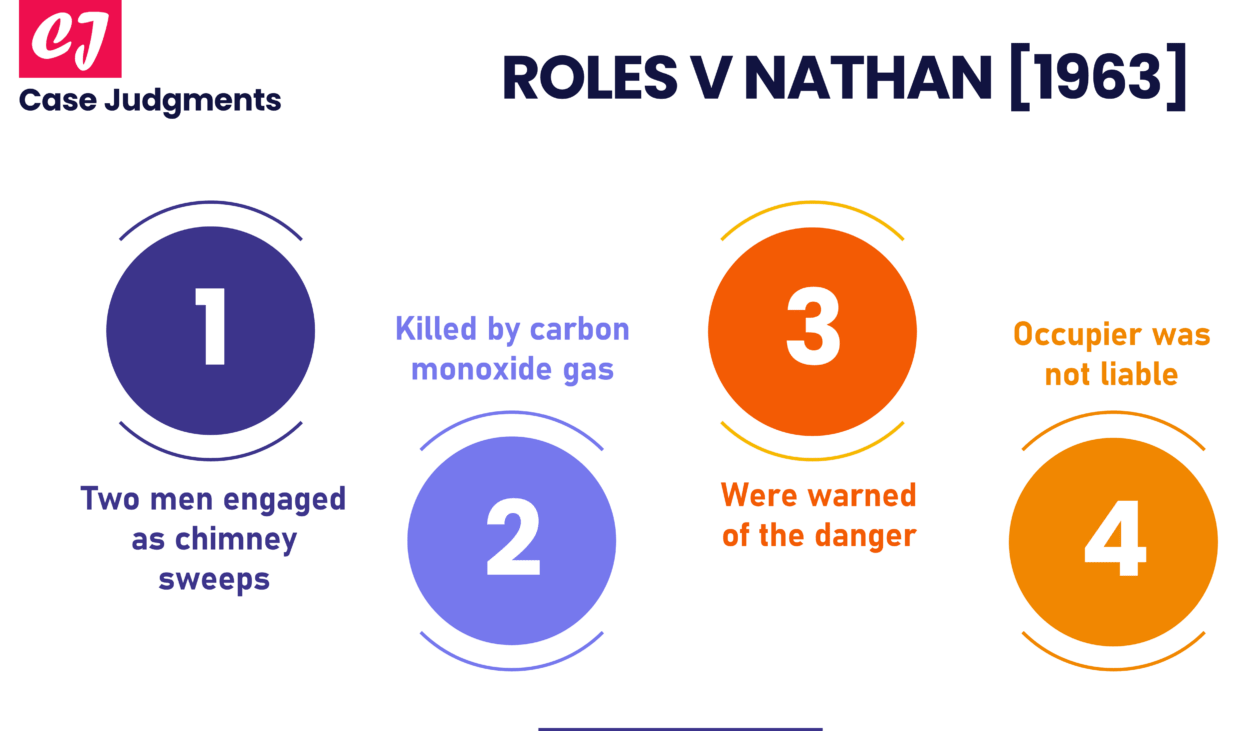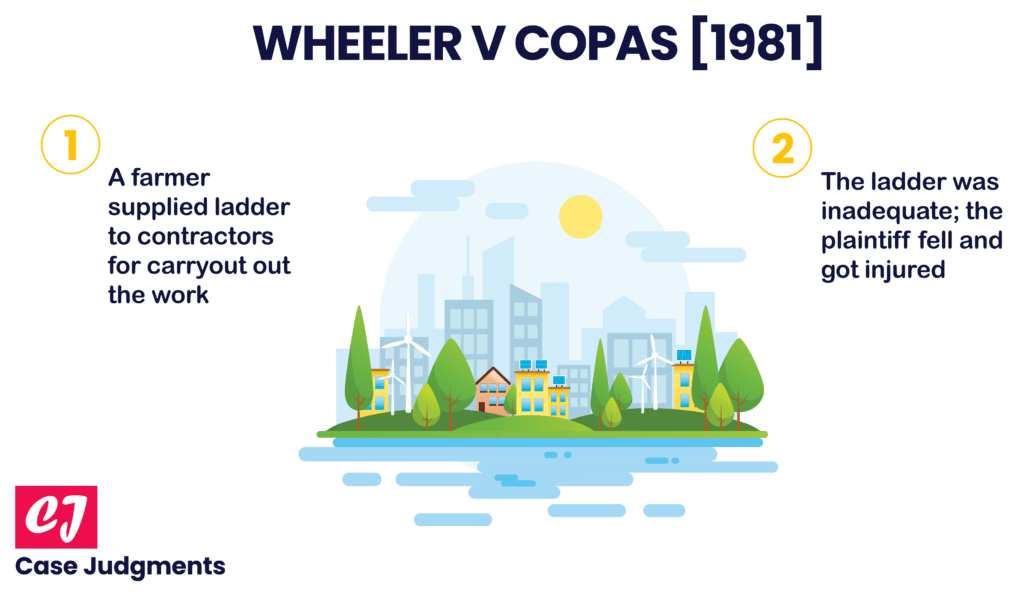
A Case Summary of Roles v Nathan [1963]
Case name & citation: Roles v Nathan [1963] 1 WLR 1117; [1963] 2 All ER 908
- Court and jurisdiction: Court of Appeal, England & Wales
- Decided on: 15 May 1963
- The bench of judges: Lord Denning MR, Lord Justice Harman and Lord Justice Pearson
- Area of law: Occupier’s liability; risks ordinarily incidental to certain occupations
What is the case about?
Roles v Nathan [1963] is a very tragic case in tort law. Here, the Court of Appeal addressed the scope of Section 2(3)(b) of the Occupiers’ Liability Act 1957 in relation to the death of two chimney sweeps. Given below are its facts.
Facts of the case (Roles v Nathan)
Two men had been engaged as chimney sweeps by an occupier, Mr Nathan at Manchester Assembly Rooms. They had died after inhaling carbon monoxide fumes while they were cleaning the flue of a central heating boiler and sealing up a sweep hole in the chimney, the boiler being alight. Their widows brought an action against the occupier claiming that he was at fault and in breach of the duty of care laid down under the Occupiers’ Liability Act 1957. Evidence showed that the occupier had warned them not to continue working while the boiler was on fire due to the danger posed by the fumes, and had indeed physically removed them from the danger area on two occasions.
What was the issue?
The question was whether the occupier could be held liable for this tragic accident.
Judgment of the Court in Roles v Nathan
It was determined that the occupier was not liable because he had in fact fulfilled his duty of care under the Occupiers’ Liability Act 1957 by informing them of the specific dangers.
Further, occupiers are entitled to presume that contractors will recognize and guard against any risks that are ordinarily associated with their employment. In this regard, Lord Denning pointed out that the risks involved were ordinarily incidental to a chimney sweep’s job and that the men should have been aware of them and taken precautions to avoid them. He went on to say that if the deaths had been caused by something unconnected to the business of chimney sweeps, such as if the stairs leading to the cellar had collapsed, then the occupier would have been held accountable.
The legal point emerging from the case
Section 2(3)(b) of the Occupiers’ Liability Act 1957 applies when an occupier hires an expert to perform work on the premises. In these situations, it is presumed that the expert is aware of any risks associated with their work and that they will take precautions to avoid them while on the premises.
List of references:
- https://nashashibilaw.weebly.com/uploads/2/0/5/9/20597118/principles_of_tort_law.pdf
- https://www.hoddereducation.co.uk/media/Documents/magazine-extras/Law%20Review/LawRev%2015_3/LawReview15_3_poster.pdf?ext=.pdf
You might also like:
More from tort law:

